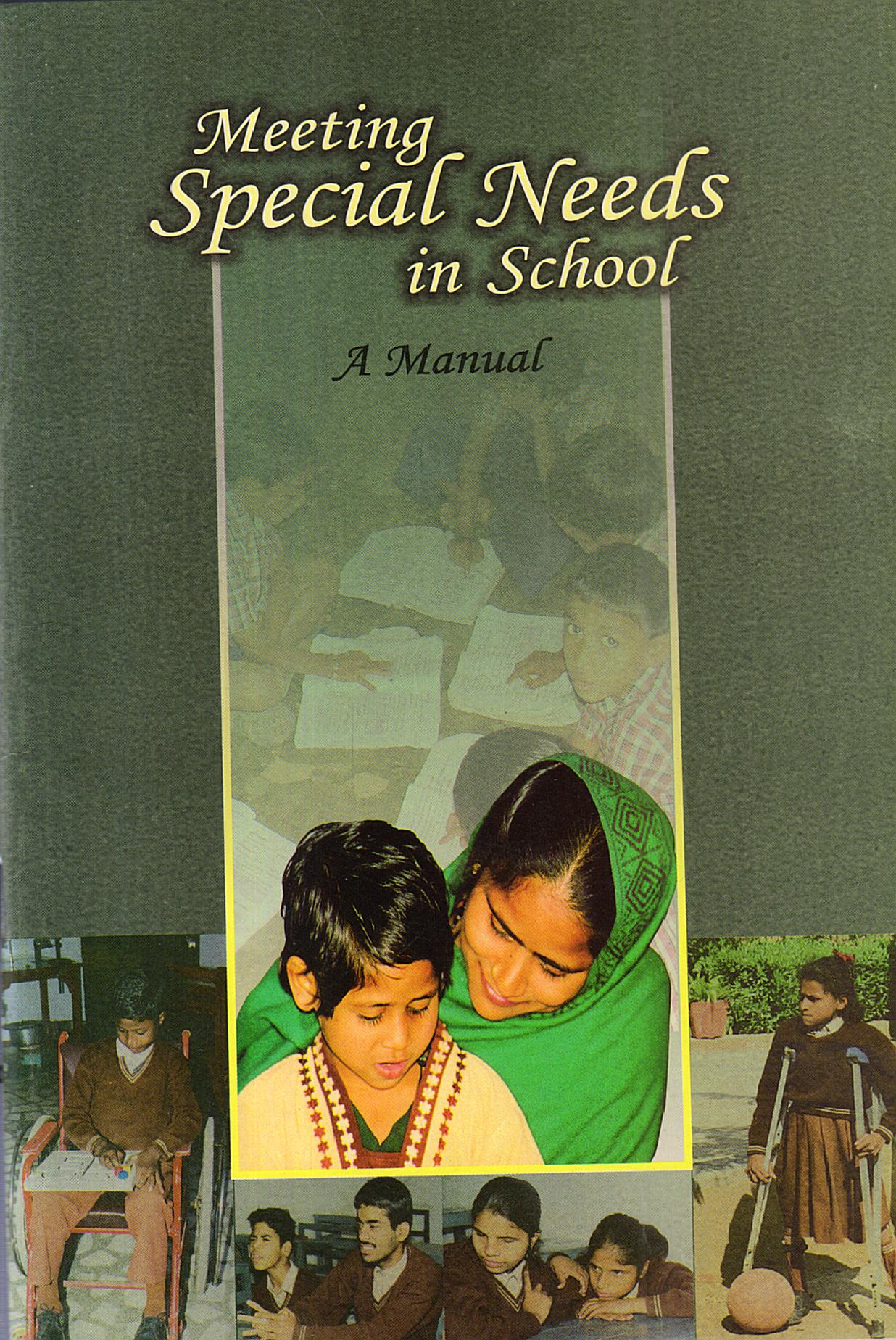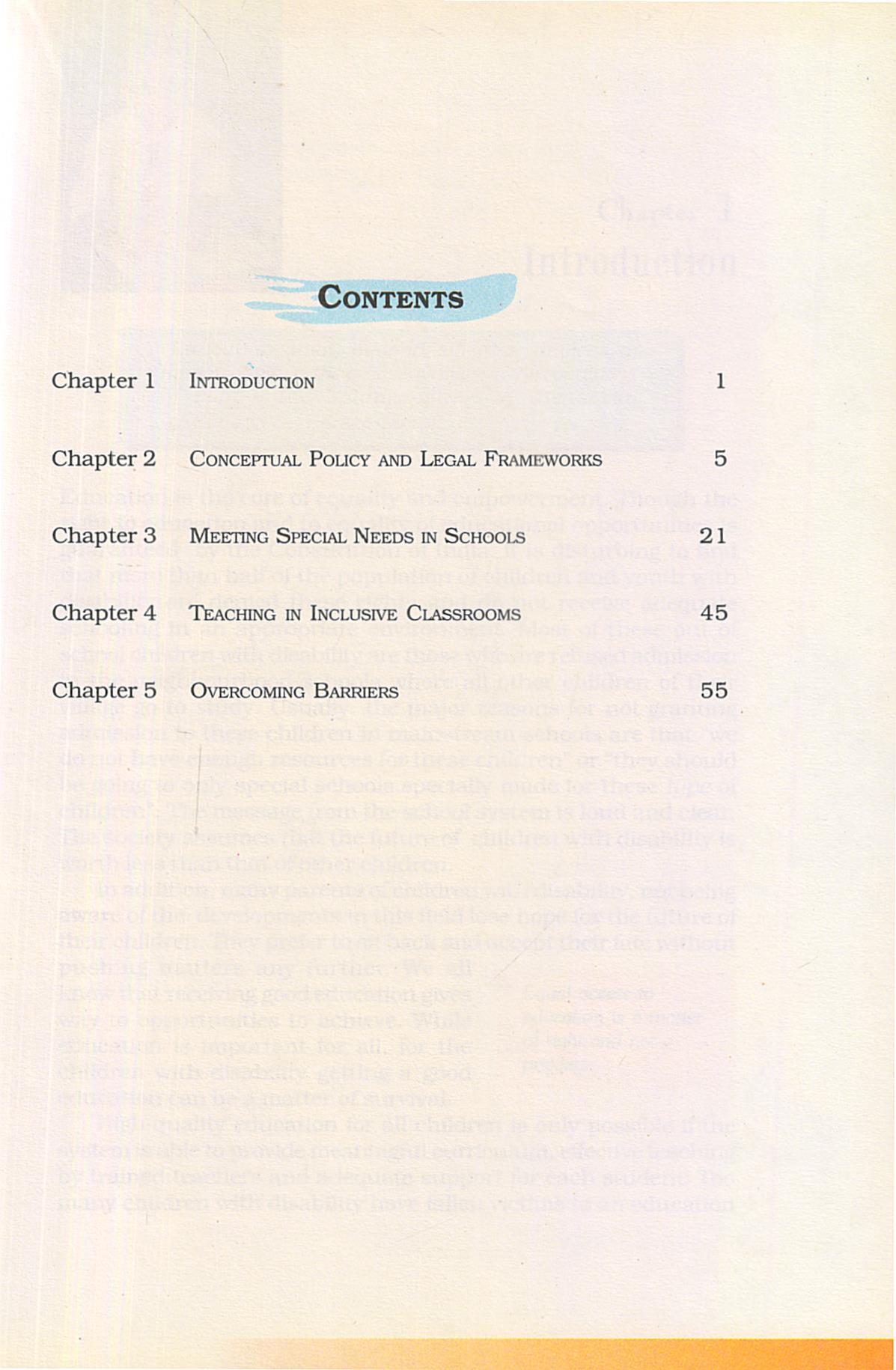FOREWORD
The National Curriculum Framework, 2005 reaffirms the commitment to the concept of equality, within the landscape of cultural and socio-economic diversity from which children enter into the portals of the school. It also recognise the importance of including and retaining all children in school through a programme that reaffirms the value of each child and enables all children to experience dignity and the confidence to learn. It also states that the attempt to improve the quality of education will succeed only if it goes hand in hand with steps to promote equality and social justice.
The Position Paper of the National Focus Group on Education of Children with Special Needs, NCERT, 2006, points out that despite the efforts of governmental and non-governmental organisations, there is still a significant need to facilitate access of disabled children to educational institutions and to education in general. The first and foremost strategy for any country, especially India, must be, therfore, to increase the access to education for learners with SEN. The Indian Government has recently ratified the UN Convention on the Rights of Persons with Disability, (1 October 2007). The Convention highlights the importance of education in Article 24 and states that:
1. State Parties recognise the right of persons with disabilities to education. With a view to realising this right without discrimination and on the basis of equal opportunity, States Parties shall ensure an inclusive education system at all levels and life long learning directed to:
(a) Persons with disabilities are not excluded from the general education system on the basis of disability and that children with disabilities are not excluded from free and compulsory primary education, or fron secondary education, on the basis of disability;
(b) Persons with disabilities can access an inclusive quality and free primary education and secondary education on an equal basis with others in the communities in which they live;









Reviews
There are no reviews yet.